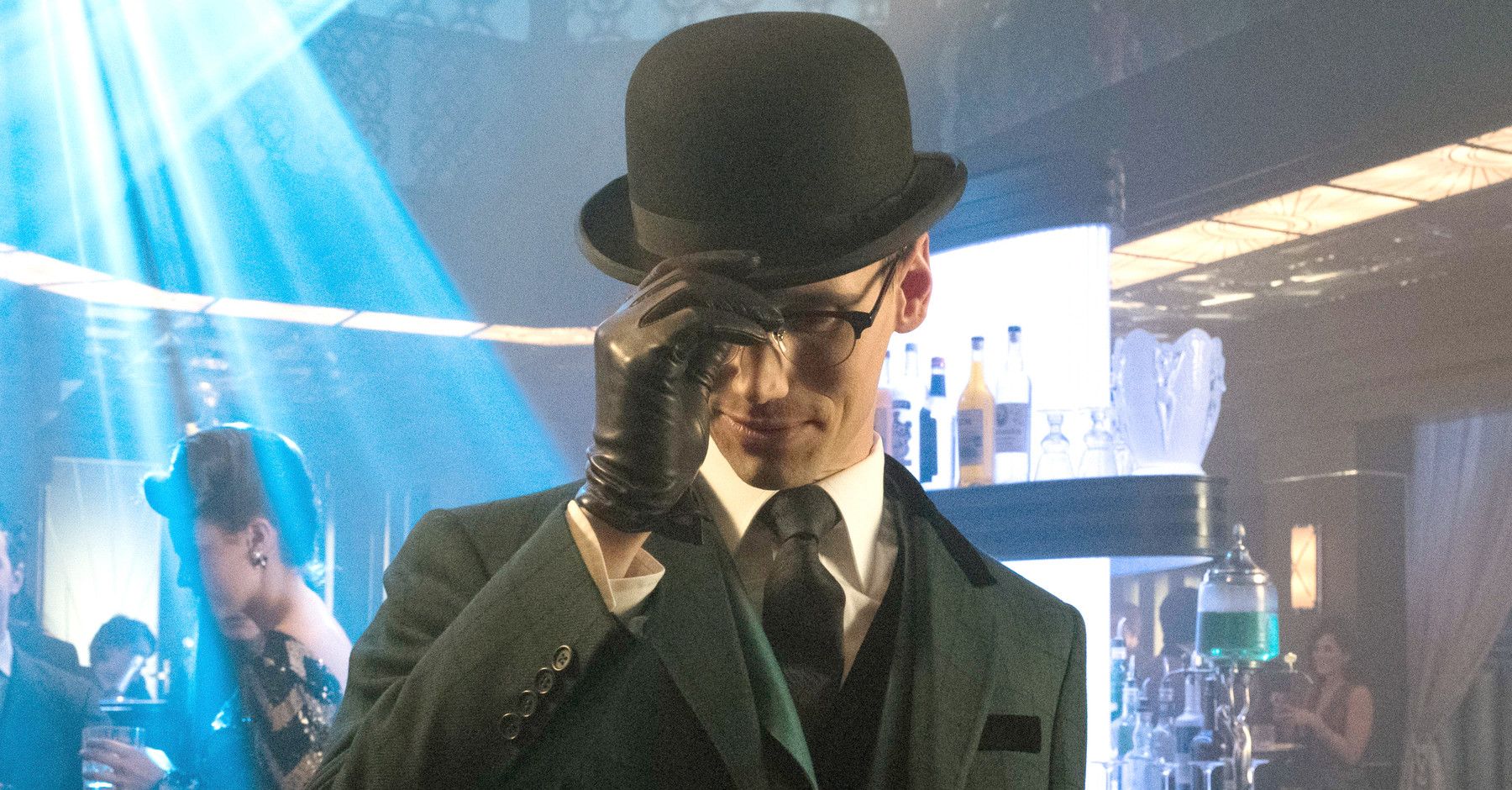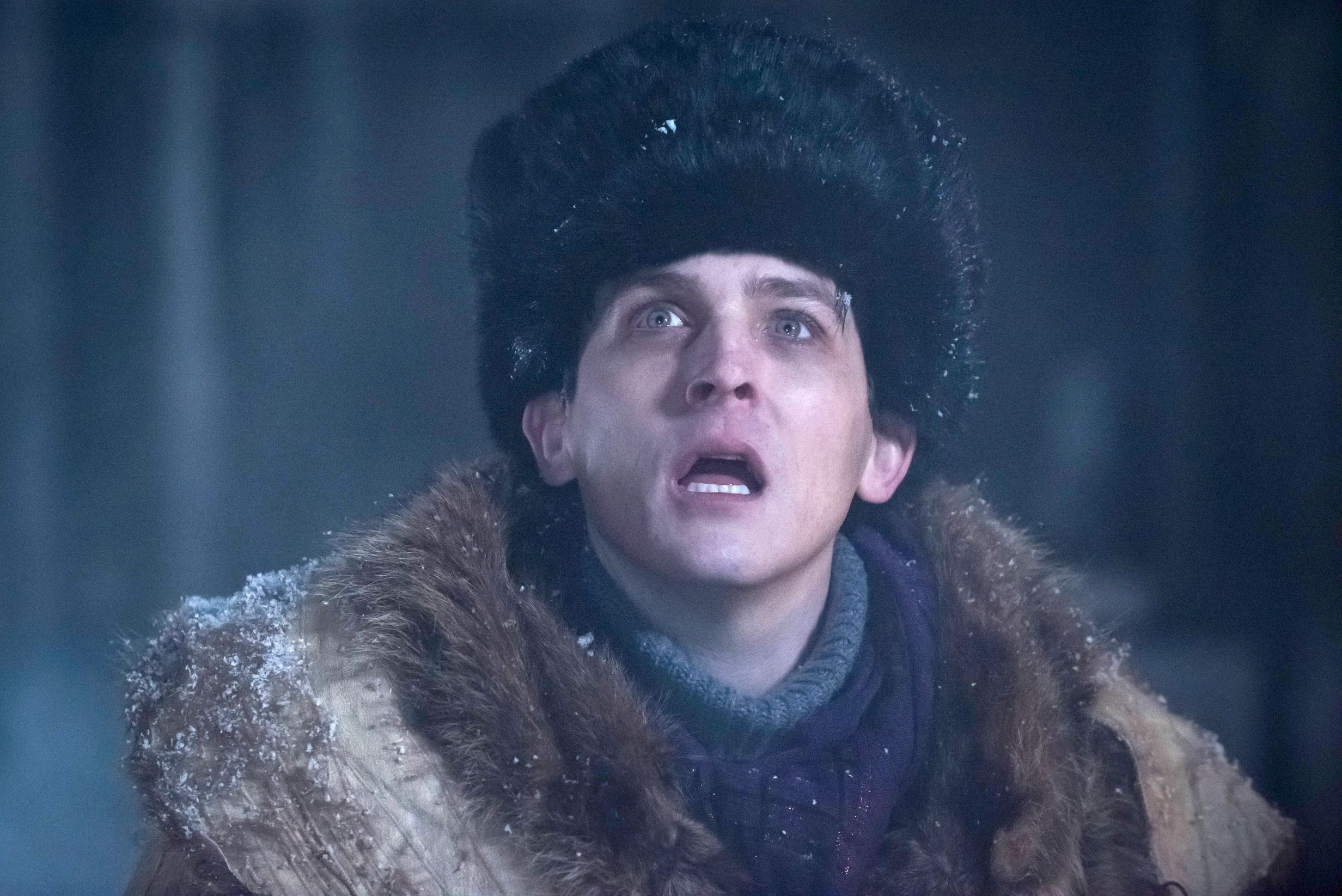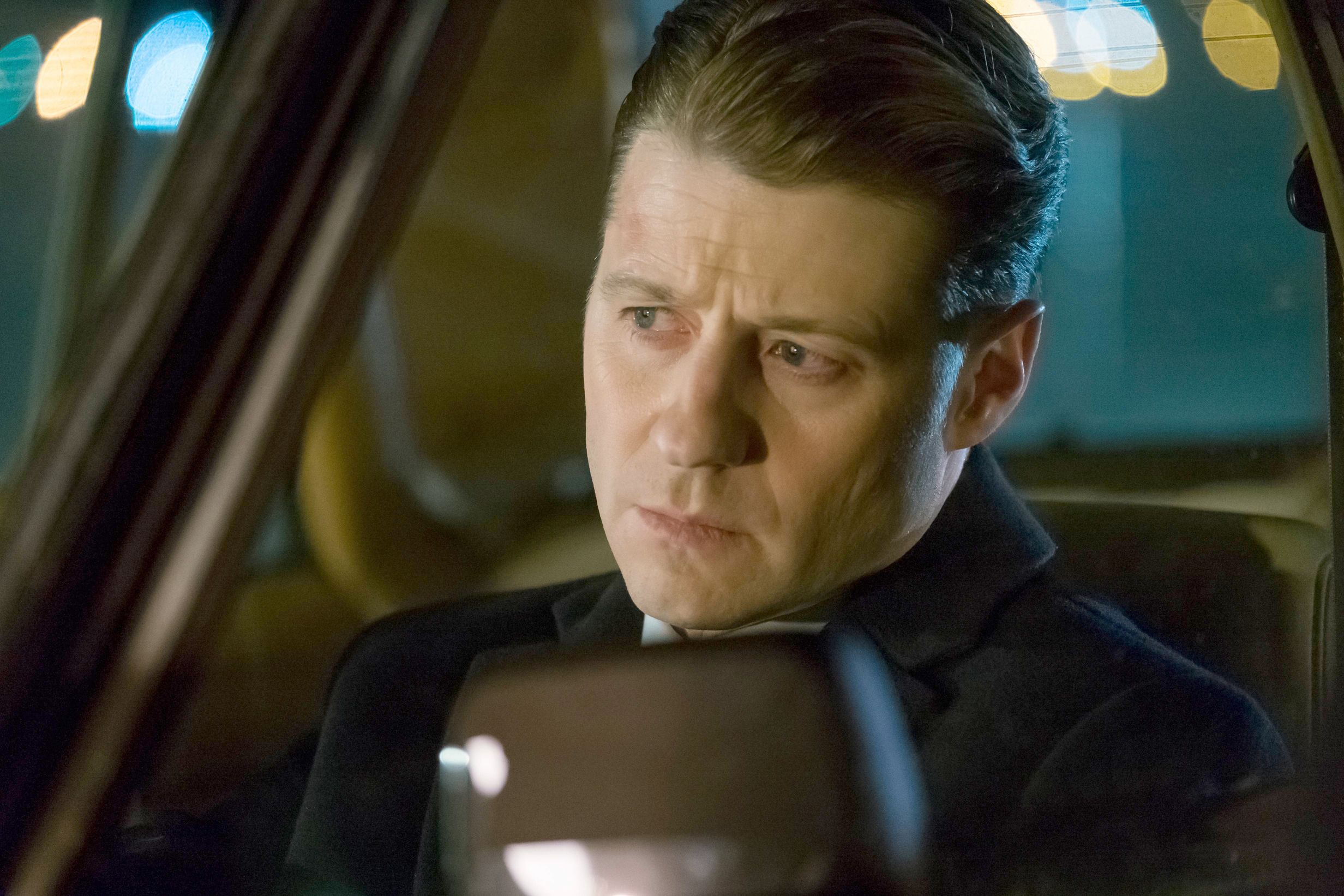Tonight's episode of "Gotham" – "The Primal Riddle" – takes its name from an obscure 1998 Steve Englehart story that involved the Riddler and Batman swapping brains for a spell. It would have been cool if the show adapted that story.
Instead, the title stands in for the show's most common practice: gluing together bits of Batman ephemera to a create a less than impressive whole. In this instance, the primal riddle is the question of who truly controls Gotham. The newly minted Riddler is obsessed with discovering it, even though the audience already knows that its the Court of Owls. Running around that tension-less story are a number of other hat tips and homages to Bat stories past, but the story largely floats along as setup for conflicts to come.
Framing the riddle-making action are the globe-trotting adventures of Penguin and Ivy Pepper. Ignore exactly how they can afford to trot the globe or what mountain fortress exactly has been serving as a new home for the show's nascent Mr. Freeze and instead just enough the scenery chewing that continues to carry this thread. After tapping the "ice" flavor of their so-called freak army, the pair add in a little fire by urging to the rebellious teen Firefly to join as well. "Gotham" is its better self when it leans into its silliness, and watching Firefly splash a dollop of molten metal (from the circa 1840 forge she apparently works at) in her crude bosses face is the kind of moment that brings the right amount of ridiculous comic book flare.
The same can't be said for the needlessly twisting path that brings Jim Gordon, Ed Nygma and the Court of Owls together. The setup is simple enough here. Riddler learns of a big, bad secret organization from Barbara Keene and becomes obsessed with finding out who pulls the levers on the city (something he himself brushed shoulders with while locked up in Arkham). Meanwhile, Jim continues his play to get invited into the Court so as to stop their mysterious doomsday machine from destroying the city. So when the Court feels threatened by Riddler's scheme to unmask them in public, they call on Jim to bring him in as his final recruitment test.
The problem with this A plot is two-fold. For one, the outcome of the story is almost never in doubt. We know Jim will find a way to join. We know Riddler will neither expose the Court nor be killed by it. We know that there's no shocking revelation or surprise waiting in the wings. Making that fact worse is the way the story twists itself into pretzel knots trying to make the Riddler's scheme more complicated. He teams with the fragile alliance of Barbara and Tabitha to first terrorize the worst production of "Hamlet" ever and then kidnap the sitting mayor to extort info on the Court. But while the scenes hint that Nygma may be playing various sides against each other, they really just exist to give the usually sharp Cory Michael Smith a chance to deliver some brutally bland lines while playing with his hat too much. On the police side, Jim and Harvey's investigation into the Court's plans are thrown by Lee piecing together the fact that Gordon's uncle was a suicide cover-up that Jim is lying about. But why should she care? The character's motivation and whole reason for being has been driven into the ground with little hope of becoming something the viewer is invested in.
Slightly better in this game of "Gotham" bingo are the squares taken up by the faux Bruce Wayne who's still stalking through the mansion with Alfred. While most of the time the faker feels about as genuine as a three dollar bill, this week the little billionaire that would learns from his handlers at the Court that the clone process which brought him to life will soon kill him. It won't be so soon that he can't play out his part in destroying Gotham as a path to reinstalling the real deal as its future protector, of course. But like a robot in a '50s sci-fi movie, the clone has grown the briefest hint of a conscience – at least as far as his immediate connections are concerned. He takes a moment to call Alfred a good friend and seems to really mean it before he tracks down Selina Kyle to spill the beans on the whole city-destroying plot to save her as well. When Kyle points out that the real Bruce would work to save everyone, not only do we see the hint of reciprocation on the real Wayne's affection for Selina, we also see fake Bruce lose his one ounce of cool and push her straight out a third story window.
The moment of truth where Selina goes flying is a pitch perfect callback to "Batman Returns" where Christopher Walken's A+ corporate goober Max Schreck tosses Michele Pfeiffer from on high, and the "Gotham" version eventually pays it off with a similar sequence of the near dead Kyle being revived by an army of alley cats. But beyond the Easter Egg-ness of it all, this homage does the show few favors. While most of the little details on "Gotham" (from the stolen comic titles to the Elfman-esque music cues to the D-list villain cameos) tie together the feeling of a Batman story, doing such a direct reference to a classic film mostly underscores how little this show has to offer in terms of memorable or original filmmaking. Aside from bringing the Penguin out of the closet, the show has done almost nothing to put a fresh spin on the Batman mythology – instead spending its time playing a more bloody, vulgar cover song of the classic tropes.
That feeling permeates the finale of the main plot as well. There's the clichéd biker gang that crashes a hospital to give Riddler cover to kidnap the mayor in his own police uniform (itself the latest pseudo-homage to "The Dark Knight"). Then there's another broken Mexican standoff between Jim and Ed, ending in an agreement for Gordon to deliver the foe to the Court where apparently both men are accepted with open arms. Jim gets the sweeter deal, though, as he steps up to wear an owl mask himself. The final slow motion shot where he puts on the feathery costume piece is another expected and dull entry in the show's many flashes of third-rate mob clichés.
In the end, "The Primal Riddle" offers no answers, nothing new and no excitement beyond a "Did you see what they did there?" gag straight out of a "Family Guy" episode. At the very least, we can hope that Steve Englehart got a little money for the title, but even that is probably too much to ask.



